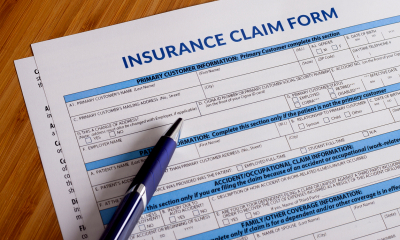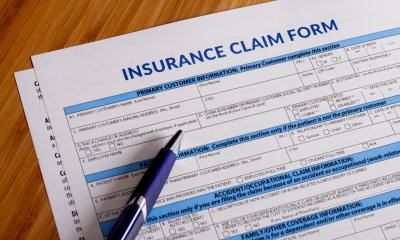
Nobody wants to arrive at work to find that your premises have been burgled, or a letter from a customer's lawyer claiming compensation. Business insurance can help you deal with the consequences.
Making an insurance claim helps minimise the disruption to your business. Taking the right approach will let you deal with things as quickly as possible.
How to make an insurance claim
It's essential to notify your insurer straight away. If you bought your policy through a business insurance broker, you should tell them as well - your broker may well be able to help you through the claim process.
If your claim involved a crime, such as a theft, you must notify the police as well. Failing to tell the police within a reasonable time may mean that you're no longer entitled to make a claim. Keep a record of the incident number the police give you.
Try to avoid doing anything about the problem yourself until you have spoken to your business insurer. Normally, the insurer can help you with any immediate steps that need to be taken, such as boarding up premises.
If you do anything without the insurer's agreement, they're less likely to cover the cost. Doing the wrong thing may even damage your chances of a successful insurance claim: for example, if you admit a crash was your fault. If in doubt, check your insurance policy documents or ask your insurer first.
The claims process
Normally you'll be asked to complete an insurance claim form, giving all the details. The more information you can give, the faster the insurance company will be able to deal with your claim.
It helps if you can keep as much evidence as possible. If appropriate, take photos or a video of the scene. Get together any receipts you have kept and a copy of your business asset register if you have one. Note down the details of any third parties involved or witnesses who saw what happened.
Once you have submitted your claim, ask your insurer what the next steps will be and how long it is likely to take. Throughout the process, keep a record of any calls and what was said. Make sure you keep receipts for any expenses that you may be able to reclaim from your insurer.
In some cases, the insurer will appoint a loss adjuster to visit you. The loss adjuster checks how much loss you've suffered and whether there are any reasons to reduce the amount you're paid. For example, a loss adjuster will want to check whether you contributed to the loss, or were underinsured.
For larger and more complex business insurance claims, you may want to appoint your own expert to act for you.
Your insurance claim checklist
Claiming on your insurance can be stressful - but if you follow these steps you can maximise your chances of success
- Ensure that employees inform you as soon as possible of any breakages, accidents, thefts, legal action against you or other potential claims.
- Check whether the loss is covered by your insurance policy and that you were complying with any conditions (eg appropriate security measures).
- Consider whether it is worth claiming, or if the excess you have to pay and the potential increase in renewal premiums outweigh the benefits of claiming.
- Notify your insurer immediately; ensure that any losses resulting from crime are reported to the police as well (insurers usually ask for a crime reference number in cases of theft).
- Ask what immediate action you can to take to minimise further loss; ensure that the insurer approves any action you plan (eg emergency repairs).
- Put everything in writing to your insurance company - even if you have already informed them by phone.
- Keep records of the claim (eg photographs of the damage), initial notification and subsequent communications.
- Collect all the information required for the claim form; take advice from the insurer or your broker if necessary.
- Be ready to get estimates for any repairs, or to be visited by the insurer’s loss adjuster who will assess your claim.
- Claim for the full scale of your loss. For example, emergency cleaning, repairs, replacements and loss of business (if covered).
- Be honest! Do not overstate your claim or your insurer could reject the whole claim.
- Submit the claim and ask for an estimate of how long the claim process will take; agree a timetable.
- Be prepared to negotiate your claim; consider appointing your own loss adjuster for large, complex claims whose value is disputed by the insurer.
- Progress your claim as quickly as possible by providing information promptly when requested; consider negotiating interim payments if necessary.
- Review the claims process once it has all be resolved to identify any changes needed to your insurance cover and procedures (eg record-keeping).


